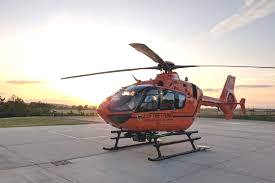Imagine the scenario; adverse weather conditions, a seriously injured crew member. There is no option but to arrange for an emergency medivac from the deck of the ship. This is, thankfully, not a situation a crew will encounter every day, yet they must be able to deal with helicopter operations safely when they do occur. A newly updated guide from the International Chamber of Shipping gives crews the support they need, when and where they need it.

The ICS Guide to Helicopter/Ship Operations has been the industry standard best practice guide for shipping companies, ships’ crews and helicopter operators for more than 40 years. Written for both those in the air and those at sea, this important interface document helps all those involved in helicopter/ship operations become familiar with the important technical aspects of these complex operations. The new fifth edition provides the latest guidance on standardised procedures and facilities for helicopter/ship operations worldwide and encourages safe and efficient performance in the field.
Gregor Stevens, Senior Marine Advisor at the International Chamber of Shipping explains: “As the shipping industry continues to grow, we are seeing more and more of these operations. Not only are they vital in emergencies, but there is also greater use of helicopters in scheduled crew changes, pilotage and even the delivery of stores in some parts of the world.
Read Also: Maritime Regulator Sets Carbon Measures Amid Dissent
“In preparing the new Guide we have worked closely with the aviation industry to reflect the most recent best practice, which in itself is continually developing. We have incorporated modern checklists and easy to understand key safety messages, taking into account the latest learnings on the human element to enhance both layout and language.”
For ships to which the International Safety Management (ISM) Code applies, this Guide can also help in developing shipboard operating procedures and requirements for the various helicopter operations that may be undertaken on board.
New in the fifth edition:
• Updated guidance on transferring marine pilots directly to the bridge wing by winch, including associated risk assessments.
• A detailed list of abbreviations and definitions from the maritime and aviation industry.
• Expanded information on the requirements specific to different ship types.
• Revised layout and checklists to better reflect human factors.
The ICS Guide to Helicopter/Ship Operations should be carried on board every ship and should be accessible to ships’ Masters, officers and crew, helicopter pilots and operators.
















Discussion about this post